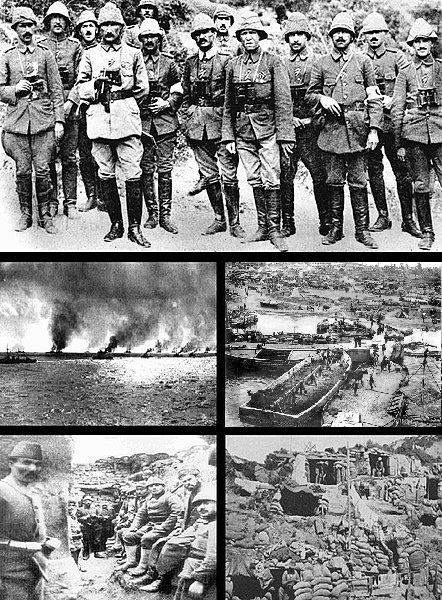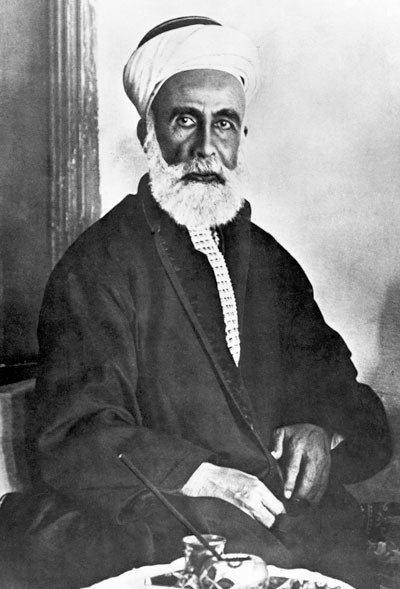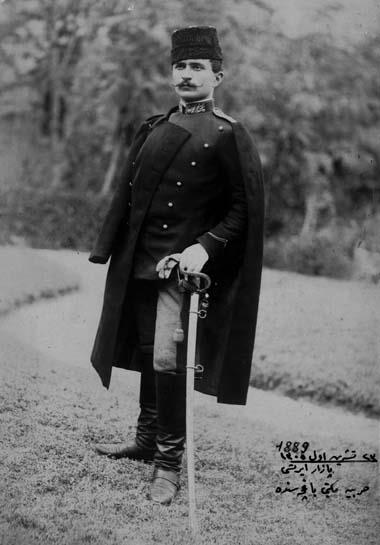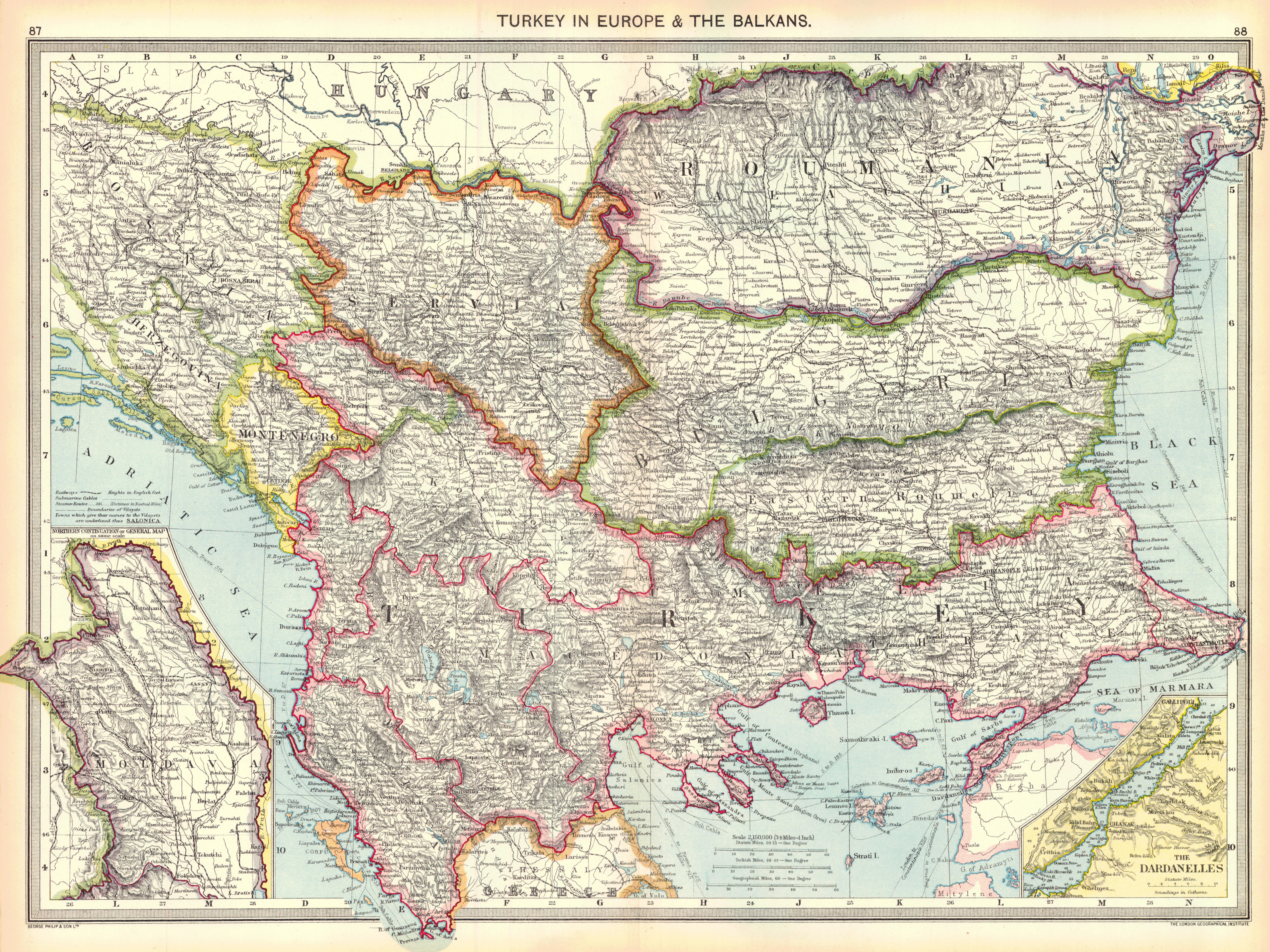|
Great Arab Revolt
The Arab Revolt ( ar, الثورة العربية, ) or the Great Arab Revolt ( ar, الثورة العربية الكبرى, ) was a military uprising of Arab forces against the Ottoman Empire in the Middle Eastern theatre of World War I. On the basis of the McMahon–Hussein Correspondence, an agreement between the British government and Hussein bin Ali, Sharif of Mecca, the revolt was officially initiated at Mecca on June 10, 1916. The aim of the revolt was to create a single unified and independent Arab state stretching from Aleppo in Syria to Aden in Yemen, which the British had promised to recognize. The Sharifian Army led by Hussein and the Hashemites, with military backing from the British Egyptian Expeditionary Force, successfully fought and expelled the Ottoman military presence from much of the Hejaz and Transjordan. The rebellion eventually took Damascus and set up the Arab Kingdom of Syria, a short-lived monarchy led by Faisal, a son of Hussein. Following th ... [...More Info...] [...Related Items...] OR: [Wikipedia] [Google] [Baidu] |
|
 |
Middle Eastern Theatre Of World War I
The Middle Eastern theatre of World War I saw action between 29 October 1914 and 30 October 1918. The combatants were, on one side, the Ottoman Empire (including the majority of Kurdish tribes, a relative majority of Arabs, and Caucasian ''Tatars''), with some assistance from the other Central Powers; and on the other side, the British (with the help of Jews, Greeks, Assyrians, some Kurdish tribes, and many Arabs, along with Hindu and Muslim colonial troops from India), the Russians (with the help of Armenians, Assyrians, and occasionally some Kurdish tribes) and the French (with its North African and West African Muslim colonial troops) from among the Allied Powers. There were five main campaigns: the Sinai and Palestine Campaign, the Mesopotamian Campaign, the Caucasus Campaign, the Persian Campaign, and the Gallipoli Campaign. There were also several minor campaigns: Arab Campaign, and South Arabia Campaign. Both sides used local asymmetrical forces in t ... [...More Info...] [...Related Items...] OR: [Wikipedia] [Google] [Baidu] |
 |
Faisal I Of Iraq
Faisal I bin Al-Hussein bin Ali Al-Hashemi ( ar, فيصل الأول بن الحسين بن علي الهاشمي, ''Faysal el-Evvel bin al-Ḥusayn bin Alī el-Hâşimî''; 20 May 1885 – 8 September 1933) was List of Syrian monarchs, King of the Arab Kingdom of Syria or Greater Syria in 1920, and was King of Iraq from 23 August 1921 until his death. He was the third son of Hussein bin Ali, Sharif of Mecca, Hussein bin Ali, the Sharif of Mecca, Grand Emir and Sharif of Mecca, who was proclaimed as Sharifian Caliphate, King of the Arabs in June 1916. He was a Hashemites#Members and family tree, 38th-generation direct descendant of Muhammad, as he belonged to the Hashemite family. Faisal fostered unity between Sunni and Shiite Muslims to encourage common loyalty and promote pan-Arabism in the goal of creating an Arab state that would include Iraq, Syria and the rest of the Fertile Crescent. While in power, Faisal tried to diversify his administration by including different ethni ... [...More Info...] [...Related Items...] OR: [Wikipedia] [Google] [Baidu] |
|
Ali Of Hejaz
Ali bin Hussein, GBE ( ar, علي بن الحسين بن علي الهاشمي, translit=Alī ibn al-Ḥusayn ibn Alī el-Hâşimî; 18791935), was King of Hejaz and Grand Sharif of Mecca from October 1924 until he was deposed by Abdulaziz bin Abdulrahman Al Saud in December 1925. He was the eldest son of King Hussein bin Ali and a scion of the Hashemite family. With the passing of the kingship from his father he also became the heir to the title of caliph, but he did not adopt the office and the style of caliph. Early life The eldest son of Hussein, Ali bin Hussein was born in Mecca and was educated at Ghalata Serai College (Galatasaray High School) in İstanbul (Constantinople). His father was appointed Grand Sharif of Mecca by the Ottoman Empire in 1908. However, his relationship with the Young Turks in control of the Empire increasingly became strained, and, in 1916, he became one of the leaders of the Arab Revolt against Turkish rule. Following the Revolt's success, Hu ... [...More Info...] [...Related Items...] OR: [Wikipedia] [Google] [Baidu] |
|
 |
Hussein Bin Ali, Sharif Of Mecca
Hussein bin Ali al-Hashimi ( ar, الحسين بن علي الهاشمي, al-Ḥusayn bin ‘Alī al-Hāshimī; 1 May 18544 June 1931) was an Arab leader from the Banu Hashim clan who was the Sharif and Emir of Mecca from 1908 and, after proclaiming the Great Arab Revolt against the Ottoman Empire, King of the Hejaz from 1916 to 1924 and Caliph from 1924 to 1925. After the abolition of the Ottoman Caliphate he was briefly proclaimed Caliph until the invasion of the Hejaz by the Saudis the following year. He was a 37th-generation direct descendant of Muhammad, as he belonged to the Hashemite family. A member of the Dhawu Awn clan of the Qatadid emirs of Mecca, he was perceived to have rebellious inclinations and in 1893 was summoned to Istanbul, where he was kept on the Council of State. In 1908, in the aftermath of the Young Turk Revolution, he was appointed Emir of Mecca by the Ottoman sultan Abdul Hamid II. In 1916, with the promise of British support for Arab independe ... [...More Info...] [...Related Items...] OR: [Wikipedia] [Google] [Baidu] |
 |
McMahon–Hussein Correspondence
The McMahon–Hussein Correspondence is a series of letters that were exchanged during World War I in which the Government of the United Kingdom agreed to recognize Arab independence in a large region after the war in exchange for the Sharif of Mecca launching the Arab Revolt against the Ottoman Empire. The correspondence had a significant influence on Middle Eastern history during and after the war; a dispute over Palestine continued thereafter. The correspondence is composed of ten letters that were exchanged from July 1915 to March 1916 between Hussein bin Ali, Sharif of Mecca and Lieutenant Colonel Sir Henry McMahon, British High Commissioner to Egypt. Whilst there was some military value in the Arab manpower and local knowledge alongside the British Army, the primary reason for the arrangement was to counteract the Ottoman declaration of ''jihad'' ("holy war") against the Allies, and to maintain the support of the 70 million Muslims in British India (particularly thos ... [...More Info...] [...Related Items...] OR: [Wikipedia] [Google] [Baidu] |
 |
Siege Of Medina
Medina, an Islamic holy city in Arabia, underwent the longest siege during World War I. Medina was at the time part of the Ottoman Empire. In the war, the Ottoman Empire sided with the Central Powers. Sharif Hussain of Mecca revolted against the caliph and the Ottoman Empire which, under the leadership of the nationalistic Young Turks, had ignored the wishes of the Caliph and sided with the Central Powers. Sharif Hussain instead sided with the British Empire. T. E. Lawrence was instrumental in this revolt. Hussain occupied Mecca and besieged Medina. It was one of the longest sieges in history that lasted until even after the armistice (10 January 1919). Fahreddin Pasha was the defender of Medina. Most celebrated him as "''the Lion of the Desert''" for his bravery and perseverance in the face of intense pressure and hardship, despite the suffering of those who remained in Medina. The siege lasted two years and seven months. Background In June 1916 Sharif Hussain, the Ha ... [...More Info...] [...Related Items...] OR: [Wikipedia] [Google] [Baidu] |
 |
Wilhelm II, German Emperor
Wilhelm II (Friedrich Wilhelm Viktor Albert; 27 January 18594 June 1941) was the last German Emperor (german: Kaiser) and List of monarchs of Prussia, King of Prussia, reigning from 15 June 1888 until Abdication of Wilhelm II, his abdication on 9 November in German history, 9 November 1918. Despite strengthening the German Empire's position as a great power by building a powerful navy, his tactless public statements and erratic foreign policy greatly antagonized the international community and are considered by many to be one of Causes of World War I, the underlying causes of World War I. When the German war effort collapsed after a series of crushing defeats on the Western Front (World War I), Western Front in 1918, he was forced to abdicate, thereby marking the end of the German Empire and the House of Hohenzollern's 300-year reign in Prussia and 500-year reign in Margraviate of Brandenburg, Brandenburg. Wilhelm II was the son of Frederick III, German Emperor, Prince Frederick Wi ... [...More Info...] [...Related Items...] OR: [Wikipedia] [Google] [Baidu] |
 |
Saud Bin Abdulaziz Al Rashid
Saud bin Abdulaziz Al Rashid ( ar, سعود بن عبدالعزيز الرشيد, Suʿūd ibn ʿAbdulʿazīz Āl Rašid; 1898 – 1920) was the tenth Emir of Jabal Shammar between 1908 and 1920. Biography It is likely that he was born in 1898 , in Hail , and he was eight years old when his father was killed, and barely a year had passed since his father’s death, until his older brothers ( Muteib the governor of Hail at the time, and Muhammad and Mishal) were killed by their uncle Sultan Al-Hamoud Al-Rashid , while he survived from The massacre when his uncles al-Sabhan fled to Medina , and lived there until the people of Hail sent to Hammoud al-Sabhan in 1908 asking to return with Prince Saud to take the leadership, knowing that Prince Saud could not assume the reins of government according to the customary constitution in Hail’s rule, Sfter the situation under the rule of Prince Saud Al-Hamoud Al-Rashid. Saud arrived in Hail in 1908 at the age of thirteen years, and the w ... [...More Info...] [...Related Items...] OR: [Wikipedia] [Google] [Baidu] |
|
Muhittin Akyüz
Muhittin Akyüz (1870 – 11 November 1940), known as Muhiddin Pasha until 1934, was a Turkish military officer and diplomat. He served for both the Ottoman Army and the Turkish Army. Medals and decorations *War Medal *Silver Medal of Liyaqat *Silver Medal of Imtiyaz * Medal of Independence with Red Ribbon See also *List of high-ranking commanders of the Turkish War of Independence This list includes high-ranking commanders who took part in the Turkish War of Independence: See also * Turkish State Cemetery#Burials * List of recipients of the Medal of Independence with Red-Green Ribbon (Turkey) Footnotes References ... Sources External links * Bilal N. Şimşir"Cumhuriyetin İlk Çeyrek Yüzyılında Türk Diplomatik Temsilcilikleri ve Temsilcileri (1920-1950)" ''Atatürk Araştırma Merkezi Dergisi'', Sayı 64-65-66, Cilt: XXII, Mart-Temmuz-Kasım 2006. {{DEFAULTSORT:Akyuz, Muhittin 1870 births 1940 deaths Military personnel from Istanbul Ottoman Mili ... [...More Info...] [...Related Items...] OR: [Wikipedia] [Google] [Baidu] |
|
 |
Fakhri Pasha
Ömer Fahrettin Türkkan, commonly known as Fahreddin Pasha and nicknamed the Defender of Medina, was a Turkish career officer, who was the commander of the Ottoman Army and governor of Medina from 1916 to 1919. He was nicknamed "''The Lion of the Desert''" and "''The Tiger of the Desert''"S. Tanvir Wasti ''The defence of Medina, 1916–19'' Middle Eastern Studies Vol. 27, No. 4 (Oct., 1991), Published by: Taylor & Francis, Ltd. pp. 642-653 by the British and Arabs for his patriotism in Medina''Defence Of Medina'' , İsmail Bilgin, , Timas Publishing Group. and is known for defending Medina in the during World War I.< ... [...More Info...] [...Related Items...] OR: [Wikipedia] [Google] [Baidu] |
 |
Djemal Pasha
Ahmed Djemal ( ota, احمد جمال پاشا, Ahmet Cemâl Paşa; 6 May 1872 – 21 July 1922), also known as Cemal Pasha, was an Ottoman military leader and one of the Three Pashas that ruled the Ottoman Empire during World War I. Djemal was born in Mytilene, Lesbos. As an officer of II Corps he was stationed in Salonica where he developed political sympathies for the Committee of Union and Progress (CUP) reformers. He was initially praised by Christian missionaries and provided support to the Armenian victims of the Adana massacres. In the course of his army career Djemal developed a rivalry with Mustafa Kemal Atatürk, served in Salonica on the frontlines of the Balkan Wars and was given the military command of Constantinople after the Raid on the Sublime Porte. Djemal's authoritarian three year rule in Syria alienated the local population who opposed Turkish nationalism. Djemal Pasha's role in the Armenian genocide has been controversial as his policies were not as d ... [...More Info...] [...Related Items...] OR: [Wikipedia] [Google] [Baidu] |
 |
Mehmed V
Mehmed V Reşâd ( ota, محمد خامس, Meḥmed-i ḫâmis; tr, V. Mehmed or ; 2 November 1844 – 3 July 1918) reigned as the 35th and penultimate Ottoman Sultan (). He was the son of Sultan Abdulmejid I. He succeeded his half-brother Abdul Hamid II after the 31 March Incident. He was succeeded by his half-brother Mehmed VI. His nine-year reign was marked by the cession of the Empire's North African territories and the Dodecanese Islands, including Rhodes, in the Italo-Turkish War, the traumatic loss of almost all of the Empire's European territories west of Constantinople (now Istanbul) in the First Balkan War, and the entry of the Ottoman Empire into World War I in 1914, which would ultimately lead to the Empire's end. Early life Mehmed V was born on 2 November 1844 at the Çırağan Palace, Istanbul.''The Encyclopædia Britannica'', Vol.7, edited Hugh Chisholm, (1911), 3; "''Constantinople, the capital of the Turkish Empire..''". His father was Sultan Abdulm ... [...More Info...] [...Related Items...] OR: [Wikipedia] [Google] [Baidu] |